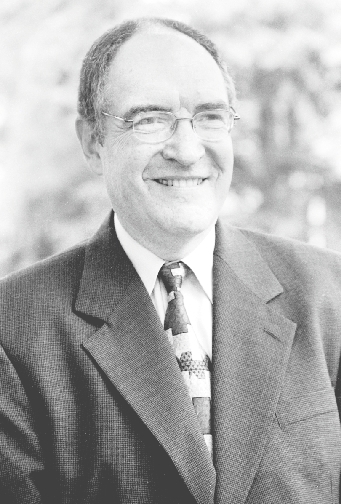Interview with a bullying victim's dad
Several weeks ago, I ran a two-part series on bullying and what schools are trying to do to deal with this growing problem. Shortly after, I caught the last few minutes of a TV interview with John Halligan, whose son Ryan was a victim of bullying and ultimately committed suicide. It was a riveting, heart-wrenching, and eye-opening talk. I wanted to share his story with my readers with a firsthand account of what occurred and tried to track John down via the Internet.
About a week later, we connected, and John agreed to be interviewed for this column. Over the next month, you will "hear" his story from start to finish:
SK: Describe Ryan. Tell me a little about him.
JH: Ryan was a very sweet, kind kid. He was a child in tune to other people's feelings and was always concerned about how other people felt. Ryan was that kind of kid and that was a very special quality about him.
SK: We're going to be talking a lot about bullying. We both know how cruel kids can be- kids of all ages. I've observed it from kindergarten through college.
JH: Bullying extends beyond college - even into adulthood. As a matter of fact, I was bullied online. One of the newspapers reported my being in town, which led to a parent coming after me.
SK: What did the parent want from you?
JH: He accused me of being someone who blamed everyone but himself and was not willing to take responsibility for his mistakes.
SK: Computers make it all the easier to be so bold.
JH: Definitely. Sitting in front of a computer screen, people are willing to say things that they would never say to your face.
SK: What was your first inkling that your son Ryan was having problems?
JH: Things gradually snuck up on us. Ryan started to have a problem with a particular boy in the sixth grade. It seemed pretty routine, the stupid kind of stuff that young kids get involved with. Ryan was very awkward in phys. ed. and not very athletic. That boy was making fun of him in the classroom.
SK: Physical prowess seems to be a huge measure of popularity for middle school kids, particularly boys.
JH: Exactly. So this kid started picking on him. Our approach was to let Ryan handle things on his own without our interfering. My wife and I thought that Ryan could deal with this kid who had the reputation of being a bully. Everyone had his number.
SK: What did you tell Ryan to do?
JH: Just ignore him. He has issues. He's looking for a response; that's what he's feeding off of. If you ignore him, he'll move on to someone else. That's how he could be proactive.
SK: Did you seek help from anyone else?
JH: Our pediatrician recommended that we use a therapist to talk about self-esteem issues and strategies for dealing with bullies.
SK: Did his recommendations work?
JH: Things seemed to be getting better. We got to the point where the therapist thought that Ryan was fine.
SK: Ryan then moved on to middle school...
JH: Yes. To this day, I don't think that Ryan was telling us everything that was going on. I think he felt embarrassed, that he should be manning up and not running to his mom and dad. He wanted to deal with things on his own, which was understandable.
SK: When did things take a turn for the worse?
JH: We had a meltdown several months into the seventh-grade school year. Ryan was sitting at the kitchen table and told us that he hated school and didn't want to go any more. I suggested that we all go to school and discuss this problem with the principal and the guidance counselor.
SK: Did you go?
JH: No. He pleaded with us not to go to school, saying it would only make things worse. He went on to tell us that another boy had gone to the administration to complain about this very same boy and the results were disastrous. He said that the other kids made even more fun of him, calling him a crybaby and taunting him as a tattletale.
SK: What happened to those kids?
JH: There were no consequences whatsoever.
SK: What did you do next?
JH: Instead, I suggested talking to this boy's parents, but Ryan didn't want me to do that either. He said that it would embarrass him.
SK: So what did you end up doing?
JH: We ended up going down the path of teaching Ryan how to fight. We had this Karate Kid kind of discussion. He got really into tai bo kick boxing-the punching bag and red gloves. We thought this was a pretty good idea. Not only was it a physical-fitness program, but it would also build up his confidence. Maybe he could teach this kid a lesson.
John Halligan and his wife did everything good parents would do. Unfortunately, as we shall see in the next installment, things continued to go south.
Dr. Steven Kussin, a high school principal for 21 years, is an adjunct professor at Hofstra University and an educational consultant for school districts around the country. His guidebook for administrators was published by Corwin Press. Contact him at stevekussin@aol.com.
(c) Dr. Steven S. Kussin, 2010

 70.0°,
Partly Cloudy
70.0°,
Partly Cloudy 




